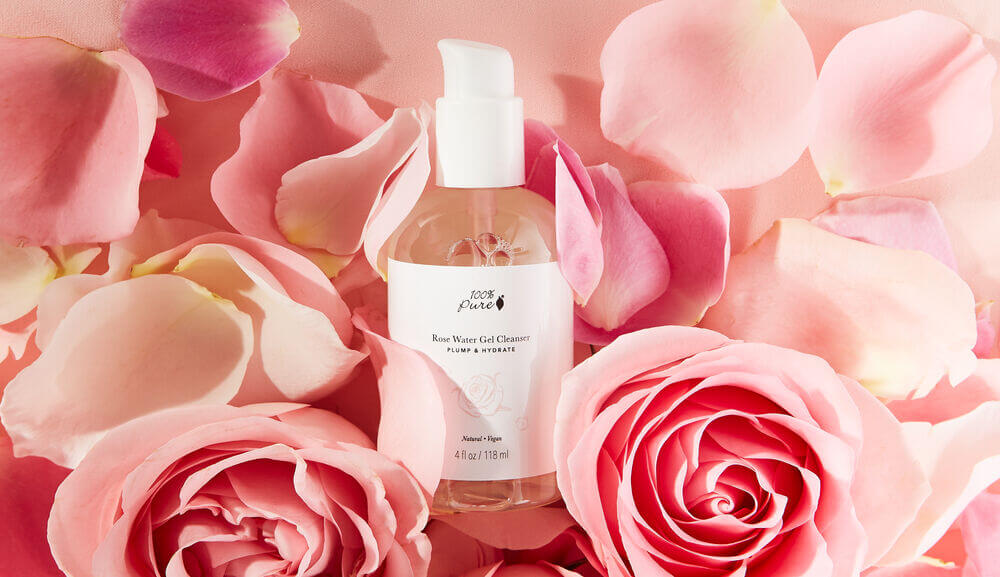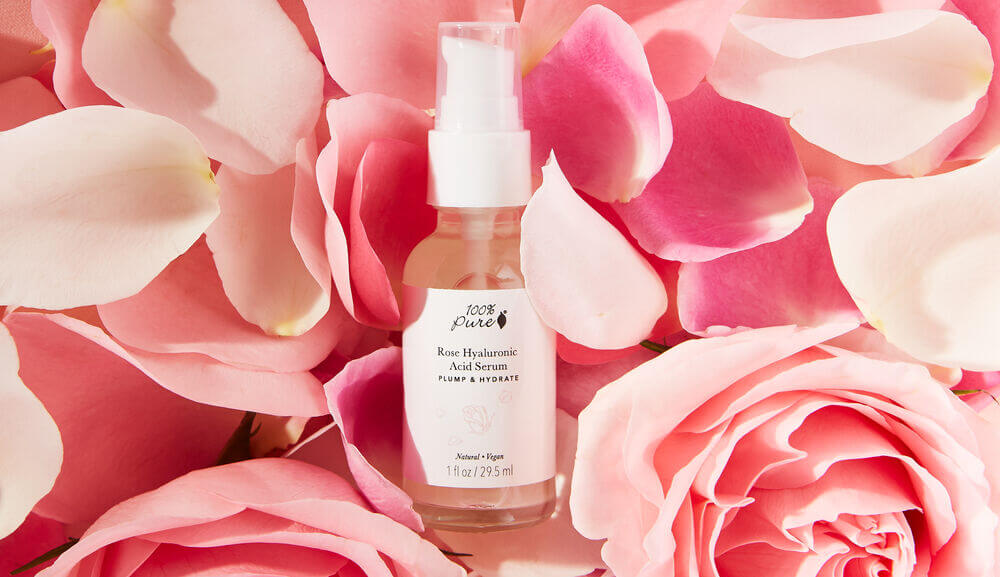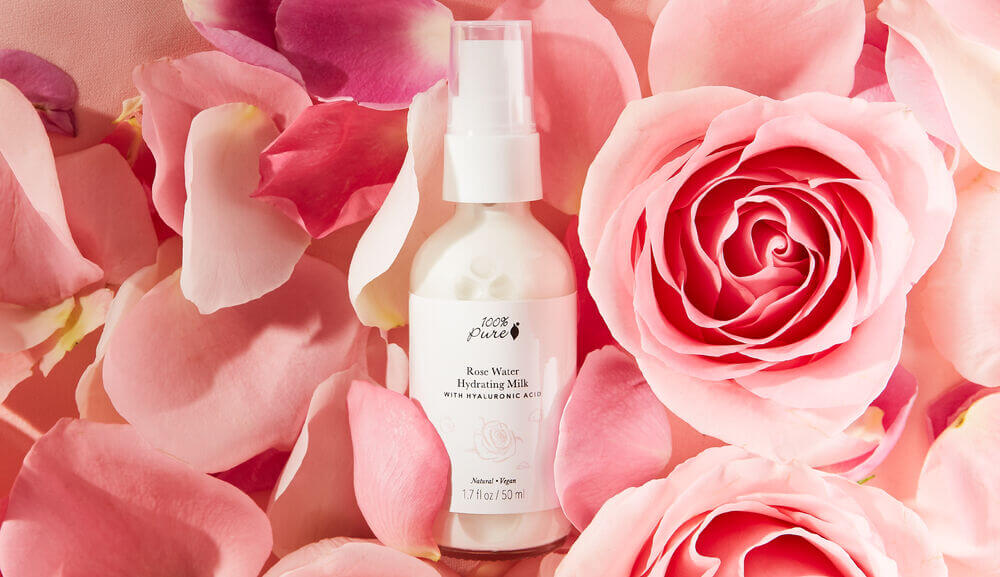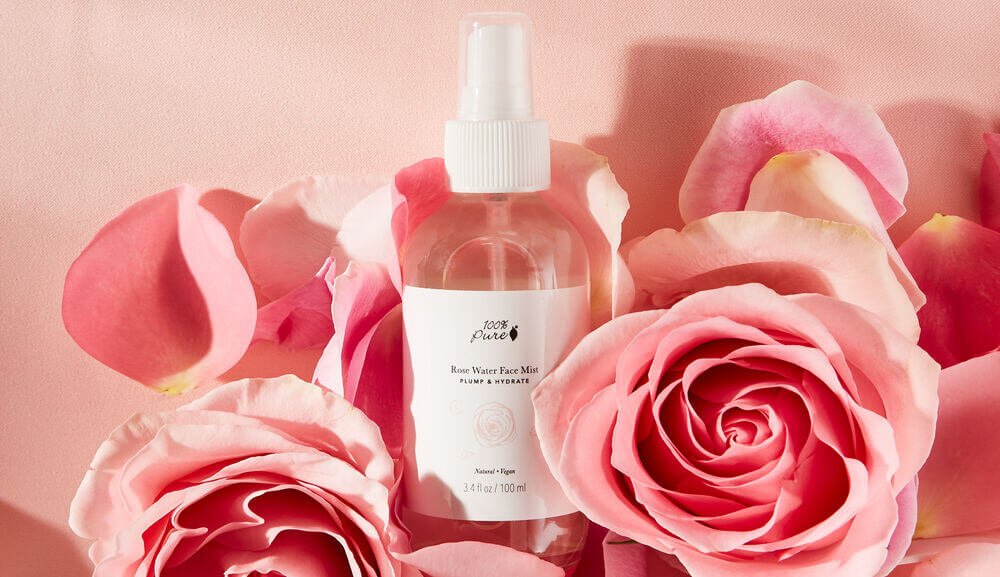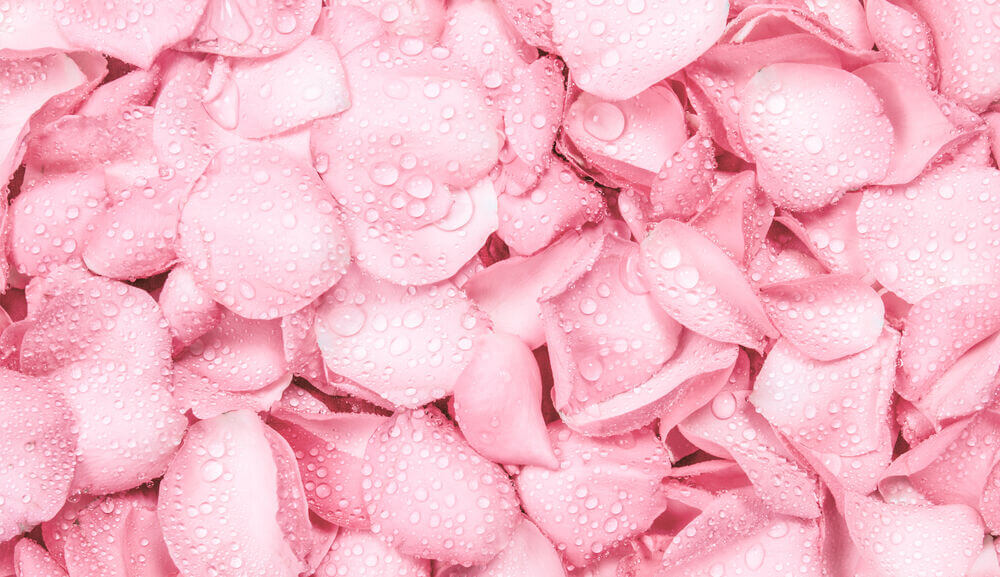
We all know a rose is the flower of love: soft, fragrant, and eternally romantic. But this elegant bloom is more than just a declaration of love; it’s also an amazing skin care ingredient known for hydrating, skin-soothing benefits.
We’ll dig into why this iconic flower is one of the most sought-after treatments for skin, and how this lovely tonic differs from rose hydrosol – plus how to fit this rosy companion into your beauty routine.
What’s the Difference Between Rose Water and Rose Hydrosol?
Both are fragrant liquids derived from roses, and are so similar they’re often used interchangeably. Both rose water and rose hydrosol offer similar benefits: hydration, anti-inflammatory properties, and the ability to soothe irritated skin. The key difference, however, lies in a matter of their concentration.
Pure rose water is water that has been scented with rose petals or rose essential oil. The water contains a small percentage of rose oil, and is more affordable than pure rose oil or rose hydrosol. Rose water is known for its fragrant aroma, and many even consider the scent to be highly aromatherapeutic. It also has a long history of hair and skin usage dating back to Ancient Persia, as early as the 10th century.
Rose hydrosol is the aromatic water that remains after steam-distilling of roses. While hydrosols have the same properties as essential oils, they are much more concentrated. Thanks to a high concentration of antioxidants, rose hydrosol has many potential benefits for skin. As a water-based ingredient, rose hydrosol makes a fantastic addition to cleansers, serums, and other products with a fluid consistency.
8 Benefits of Rose Hydrosol for Skin
With its stellar hydrating and soothing abilities – plus anti-inflammatory and antibacterial powers – it’s no wonder rose hydrosol has become so popular in skin care.
There are innumerable benefits of this lovely, fragrant tonic. We’re covering the top benefits for your skin, and identifying which skin types can get the most from this delicate ingredient.
#1: Reduces redness
Should some redness flare up on your skin, rose hydrosol can minimize its appearance – and any accompanying irritation. It’s one of the better known ingredients used to calm and soothe sensitive skin.
#2: Moisturizes
Moisture is key for healthy looking skin, and rose hydrosol is a natural hydrator. The natural oils in rose hydrosol provide light moisture and cooling hydration.
#3: Calms inflammation
With its anti-inflammatory and antibacterial properties, rose hydrosol can provide relief for those suffering from irritated skin, acne, eczema, and psoriasis.
#4: Balances skin
Thanks to its ability to clarify and balance skin, rose hydrosol can help maintain the skin’s natural pH balance and help control excess oil – great news for oily skin types!
#5: Minimizes pores
Rose hydrosol can help remove pore-clogging impurities and diminish the appearance of enlarged pores for a more toned, smooth complexion.
#6: Helps damaged skin
Rose hydrosol contains a high concentration of antioxidants, which are beneficial for reducing signs of environmental damage. For this reason, rose hydrosol may help to fortify skin cells against sun damage while offering regenerative benefits for sun damaged tissue.
#7: Supports aging skin
Rose water and rose hydrosol have long been used to help skin age gracefully. Rose can help diminish the appearance of fine lines and wrinkles while helping to plump and firm the skin.
#8: Replenishes dull, dehydrated skin
Since rose hydrosol removes impurities from skin, it can make skin appear more vibrant. When skin is dehydrated it tends to look dull, which in turn can amplify other minor impurities in the skin. With its perfect balance of hydration, moisture, and toning capabilities, rose hydrosol can instantly revitalize the skin.
Rose Water and Rose Hydrosol Skin Care
We’ve made it easy to incorporate rose water or rose hydrosol into your routine. Keep reading for the top products that will benefit all skin types, especially dry or sensitive.
#1: Rose Water Gel Cleanser
Thoroughly wash away the stress of your day with this gentle, skin-softening cleanser. Made with fragrant Damask rose and calming calendula flower, this liquid gel cleanser employs balancing rose hydrosol to restore and protect the moisture barrier.
#2: Rose Hyaluronic Acid Serum
With the help of rose hydrosol, this skin-plumping serum combines the soothing, cooling effects of aloe vera with fragrant, redness-reducing rose. Toning white tea and plumping hyaluronic acid complete this recipe for dewy, youthful looking skin.
#3: Rose Water Hydrating Milk
This feather-light, fast-absorbing moisturizer leaves dry skin feeling petal soft without even a trace of oily residue. Rose hydrosol and hyaluronic acid ensure skin feels instantly hydrated with every application.
#4: Rose Water Face Mist
Go beyond your average rose water mist with a super boosted formula featuring hyaluronic acid, aloe vera, and white tea. With its aromatic rose fragrance, this face mist offers additional support to reduce redness and condition the skin.
#5: Cucumber Cloud Foam Cleanser
This ultra gentle foaming face wash replenishes thirsty skin cells with cucumber juice and aloe vera. Rose hydrosol soothes irritated skin and calms redness for a face that’s perfectly balanced post-cleanse.
#6: Calendula Flower Cleansing Milk
This floral fantasy does wonders for the skin. This cleansing milk delivers a kiss of moisture and hydration with rose hydrosol, calendula, and chamomile to gently lift away impurities without drying the skin.
Whether you choose to use rose water or rose hydrosol for skin, you’re guaranteed to reap the benefits of this legendary flower. Make this powerful floral a part of your daily routine – you can even use rose hydrosol for hair!
Incorporating Rose Water and Rose Hydrosol into Your Skincare Routine
To maximize the benefits of rose water or rose hydrosol in your skincare regimen, consider these tips:
Use as a Toner: After cleansing, apply rose water or hydrosol with a cotton pad to balance pH and prep skin for the next steps in your routine.
Boost Your Moisturizer: Add a few drops to your regular moisturizer for an extra hydration boost.
Refreshing Mist: Keep a spray bottle of rose water or hydrosol handy for a quick, refreshing spritz throughout the day.
Makeup Setting Spray: Use as a natural setting spray to help your makeup last longer while providing a dewy finish.
Soothe Irritation: Apply to sunburns, razor burn, or other skin irritations for instant relief.
Frequently Asked Questions About Rose Water and Rose Hydrosol
Q: Can rose water or rose hydrosol be used on all skin types?
A: Yes, both are generally suitable for all skin types. They’re particularly beneficial for dry, sensitive, or mature skin due to their hydrating and soothing properties. Oily skin types may also benefit from their balancing effects.
Q: How often should I use rose water or rose hydrosol in my skincare routine?
A: These products are gentle enough to be used daily, both morning and night. However, as with any new skincare product, start by using it once a day and gradually increase frequency as your skin adjusts.
Q: Can rose water or rose hydrosol help with acne?
A: While not a primary acne treatment, the anti-inflammatory and antibacterial properties of rose water and hydrosol may help soothe acne-prone skin and reduce redness associated with breakouts. However, for persistent acne, it’s best to consult a dermatologist.
Q: Is there a difference in shelf life between rose water and rose hydrosol?
A: Rose hydrosol typically has a longer shelf life than rose water due to its higher concentration of natural preservatives. However, both should be stored in a cool, dark place and used within 6-12 months of opening for best results.
Q: Can I make my own rose water at home?
A: While it’s possible to make a simple rose water at home by steeping rose petals in water, it won’t have the same concentration or purity as commercially produced rose water or hydrosol. Homemade versions also lack preservatives, so they should be used within a week and stored in the refrigerator.
Remember, while rose water and rose hydrosol offer many benefits, they’re best used as part of a comprehensive skincare routine tailored to your specific skin needs. If you have any concerns or skin conditions, it’s always best to consult with a dermatologist before introducing new products into your regimen.
Source by [author_name]

